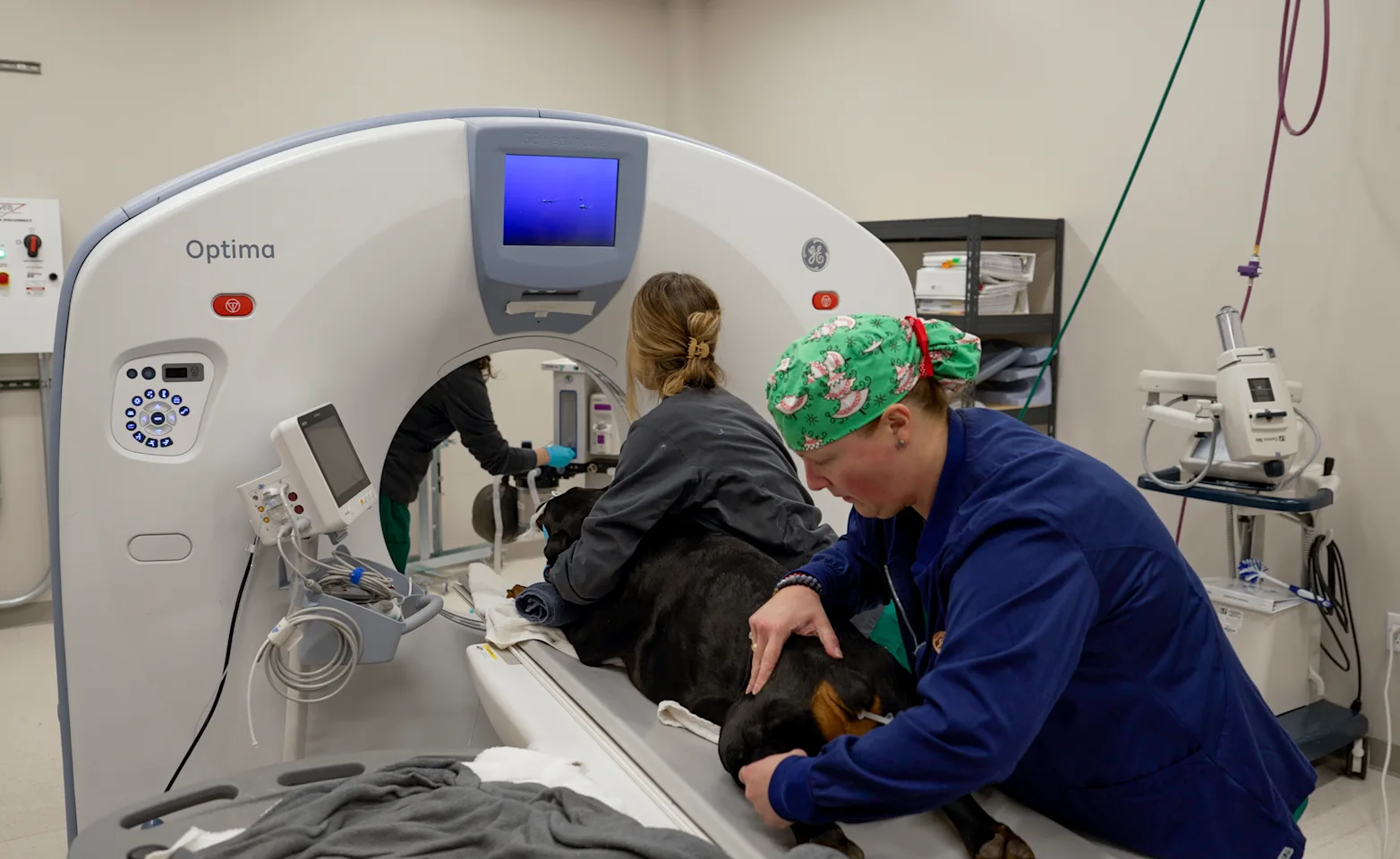South Asheville Veterinary Emergency & Specialty

Overview
Internal medicine involves diagnosing and treating diseases of the various organ systems, such as the gastrointestinal (GI), urinary, respiratory, endocrine, or hematologic systems. Organ function is complex, and many body functions involve multiple organ systems, which means that reaching a diagnosis and formulating a successful treatment plan can be challenging. Pets with these conditions can often benefit from a specialist’s care.
Our internal medicine department manages a variety of complex diseases including:
Gastrointestinal diseases
Inflammatory bowel disease, pancreatitis
Liver disease
Hepatitis, cirrhosis, portosystemic shunts, cholangiohepatitis
Infectious diseases
Bacterial, viral, fungal, and protozoal diseases
Urogenital diseases
Renal failure, feline lower urinary tract disease (FLUTD), urethral obstruction, bladder stones, ectopic ureters, urethral stenting
Endocrine diseases
Diabetes mellitus, thyroid disease, Cushing’s disease, Addison’s disease
Hematologic diseases
Anemia, platelet disorders
Respiratory diseases
Feline asthma, pneumonia, chronic bronchitis; chronic nasal diseases
Internal diseases often require advanced diagnostics and testing to uncover complex disease processes. Diagnostics that may be used to help our specialists reach an accurate diagnosis include:
Digital X-rays
Digital X-rays allow our team to quickly obtain diagnostic images of a pet’s internal structures. X-rays are particularly useful in diagnosing skeletal diseases and injuries.
Ultrasonography
Ultrasound is a real-time imaging modality that helps our internal medicine team evaluate a variety of soft tissue structures, such as the liver, GI tract, and urinary bladder. Ultrasound is also often used to visualize needle placement during a needle biopsy or sample collection.
Endoscopy
An endoscope is a small camera that is inserted into a body cavity to digitally transmit an image to a computer screen. Endoscopy provides a birds-eye view of a pet’s internal structures, and can help our internists diagnose and retrieve GI foreign bodies, collect tissue samples and biopsies, and evaluate thoracic and abdominal organs.
Computed tomography (CT)
A CT unit takes multiple images of a body area in slices, which are then stacked to provide a detailed image of internal structures.
Bone marrow evaluation
A bone marrow sample can be evaluated to better understand anemia, leukemia, and other diseases affecting a pet’s blood cells.
Electrocardiography (ECG)
An ECG allows us to evaluate the electrical activity in your pet’s heart to determine if additional medications are indicated.
Blood pressure monitoring
Blood pressure evaluation is an important part of managing many chronic conditions.
Our internists use an array of medications and treatments to manage internal diseases. At SAVES, advanced treatment options include:
Critical care management
Our critical care unit is led by a board-certified veterinary criticalist, and is staffed around the clock by highly skilled veterinary professionals who treat and monitor the most critically ill patients.
Feeding tube placement and management
Pets with a compromised upper GI tract and those suffering from inappetence can often benefit from nutrition administered via a surgically placed feeding tube.
Transfusion medicine
Our veterinary internists are able to administer blood and blood products to patients affected by blood loss, anemia, and other blood-related deficiencies.
Oxygen therapy
Patients with severe respiratory disease often require oxygen therapy, which can be administered via nasal cannula or an oxygen cage.
Laser lithotripsy
Laser lithotripsy is a minimally invasive treatment that helps break up urinary stones so they can be eliminated in the urine, instead of being surgically removed. Laser lithotripsy is only offered at select veterinary specialty hospitals, and we are proud to make this advanced treatment option available to our patients.
At South Asheville Veterinary Emergency and Specialty, our team works together to ensure every patient receives the most comprehensive care available. Our veterinary internists frequently collaborate with our other specialty teams to provide an accurate diagnosis and successful treatment plan.
